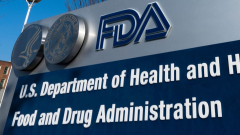Trump’s health secretary nominee, Robert F. Kennedy Jr., has said little about how regulating tobacco fits into his plans to overhaul the government’s approach to fighting chronic disease. Even if the effort goes ahead under Trump, tobacco companies like Reynolds American and Altria are almost certain to challenge it in court, delaying implementation.
The FDA has spent years studying the issue and said Wednesday that reducing nicotine would help nearly 13 million current smokers quit cigarettes within one year. Roughly 48 million more young people would never take up the habit because cigarettes would essentially become nonaddictive, according to agency projections.
“This action, if finalised, could save many lives and dramatically reduce the burden of severe illness and disability, while also saving huge amounts of money,” FDA Commissioner Robert Califf said in a statement.
Under the agency’s plan, nicotine in cigarettes would be capped at levels that “could no longer create and sustain this addiction among people who smoke”.
Companies would have to years to reformulate their products after publication of a final regulation. The agency posted its 334-page proposal online Wednesday morning and said will take public comments for nine months before taking any further steps.
Antismoking advocates overwhelmingly back the idea and urged Kennedy to help implement it, if he is confirmed.
“Tobacco regulation is a huge part of reaching the goals he’s outlined for reducing chronic disease and a really important part of the conversation we need to have in this country,” said Chrissie Juliano of the Big Cities Health Coalition,





